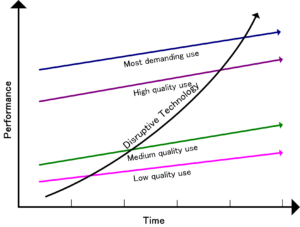In the past few weeks, the nation has seen the equity of marriage, racism unbridled, and the ACA upheld. This week, we are discussing drones over the Georgia Capitol airspace. In my childhood here in the peach state, each of these headlines could not have been even remotely imagined. As each side vilifies the other and the doors these headlines highlight creep farther and farther open, the battle wages again anew on each issue as the liberty versus security pendulum swings. With these changes come the reaction of fear of the unknown and their once long-held power, waning.
The question now is simply to which side shall the pendulum swing for business in Georgia?
Georgia’s largest industry is agriculture. We have rolling farm lands, pine trees to harvest, and the film industry makes up the next largest industry in the state. However, Georgia is also home to 16,250 technology companies with a $113.1 billion economic impact on Georgia, making it the 5th-largest IT employment cluster in U.S. (200,000 high-tech professionals), and as I passed the Google fiber being installed in my neighborhood on my walk this week, I cannot help but wonder how the influx of disruptive innovation will break down the power holds of business and regulation in the state, in what ways it will propel our economy, and which groups will be adversely affected by it.
A disruptive innovation is an innovation that helps create a new market and value network, and eventually disrupts an existing market and value network (over a few years or decades), displacing an earlier technology.
Innovation is largely seen in a positive light. I like and use Uber, Airbnb, my iPhone, and Amazon. Each of these are innovations in their respective industries that have brought us newfound convenience, cost savings, and have forever changed the way we do business. However, this is not to say that innovation has not adversely affected some industries. By consequence, disruptive innovation is disruptive and leaves some in its wake, namely those in powerful positions or coveted corners of the market. The newspaper business has had to completely rethink their model due to the internet, the railroad industry shifted their model from passenger to largely freight in the U.S., and who uses a typewriter anymore other than hipsters?
So as Georgia moves up the ranks in the IT field and positions itself to be a kingmaker in the South for start-ups, I ponder aloud what policies we are considering? Which of these policies will negatively affect innovation or security? Which will call supremacy in a market into question or raze the industry as a whole? As the largest payroll service company (ADP) rests within our boarders, our healthcare IT firms create new and more effective ways for doctors to serve patients remotely, I wonder what our policy leaders know of this field before they make decisions. Some, like Tech grads Rep. Mike Dudgeon and Buzz Brockway have made headway into this policy discussion. Yet many elected officials do not even know how to text and may be easily influenced by those who dominate the market and can line their campaign coffers. So what will the line be for our policies on privacy? On our security? What paths will this state pioneer in innovation, business and liberty? What new sources of power will rise and others fall? And what security of the old way of doing things will we have to surrender? Back and forth, the pendulum continues to swing-taking with it the past pillars of power.
